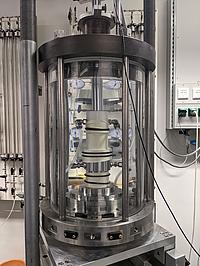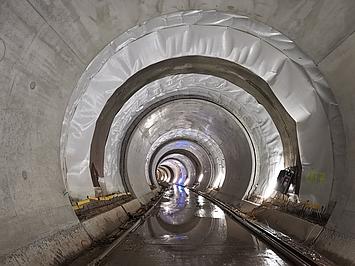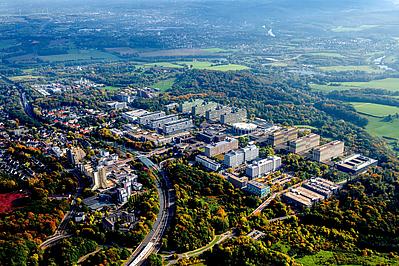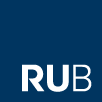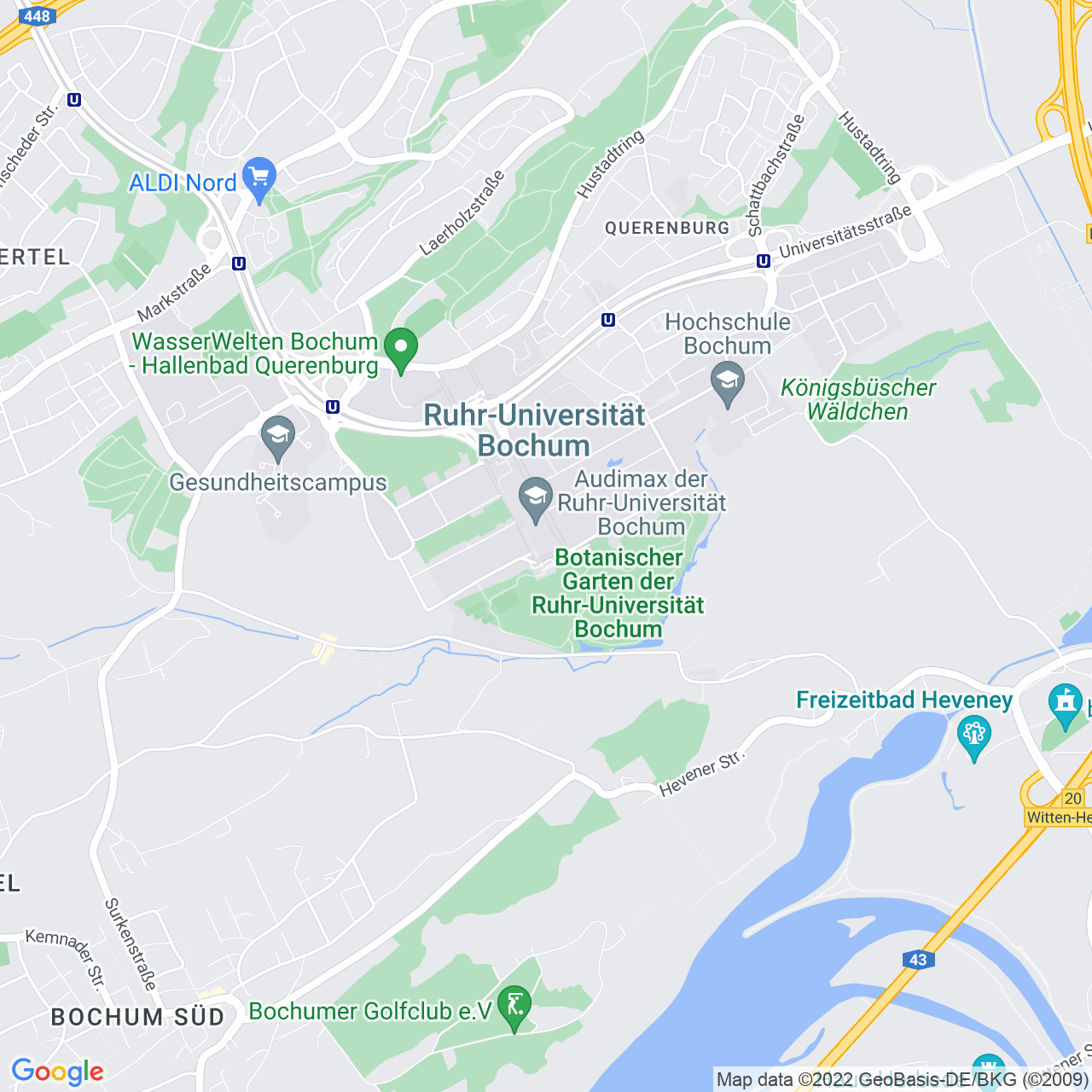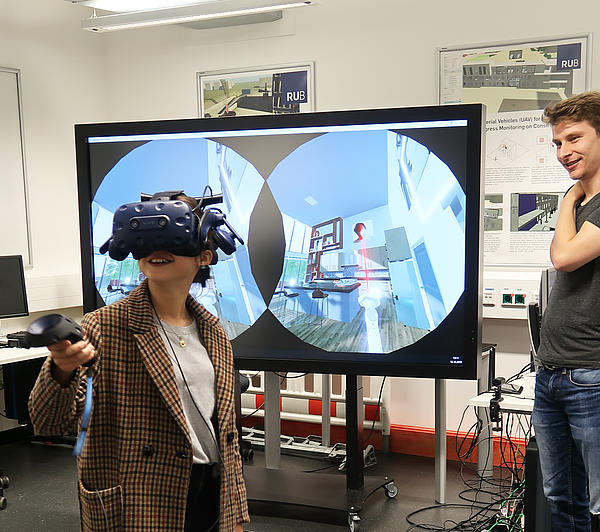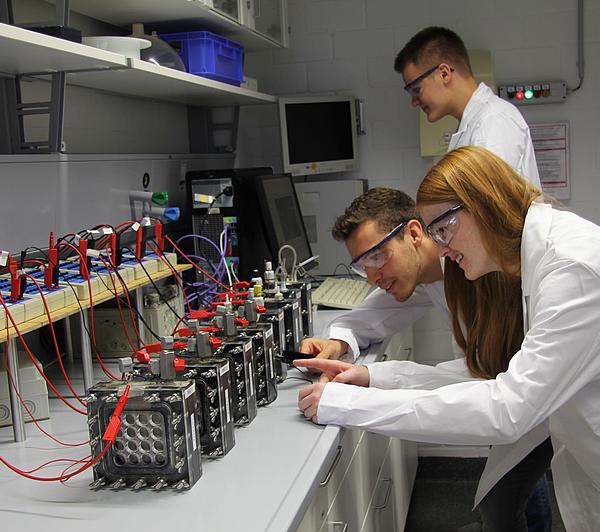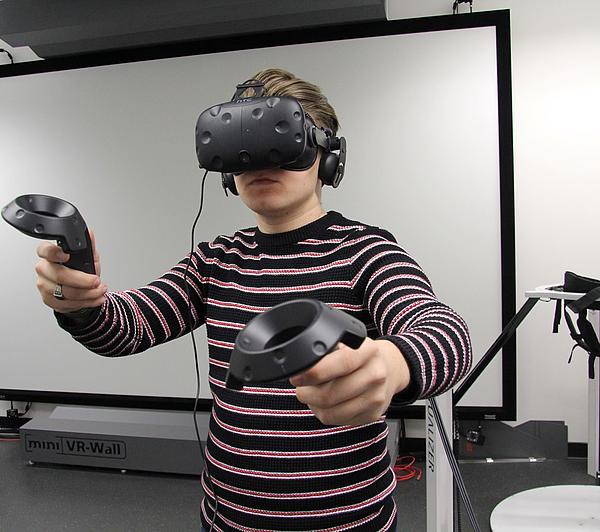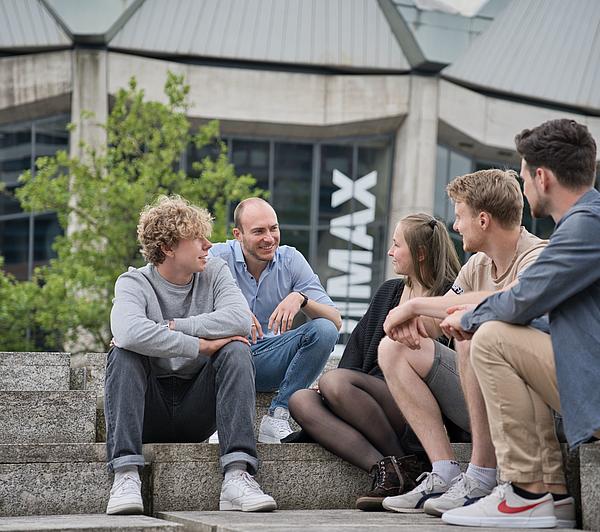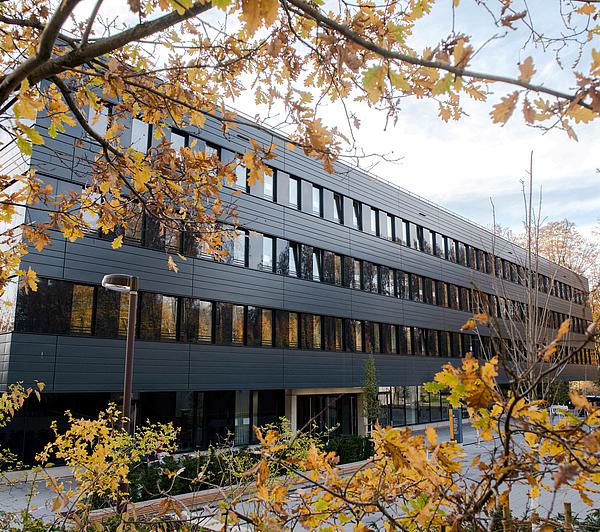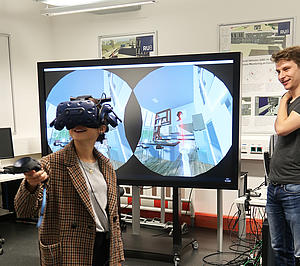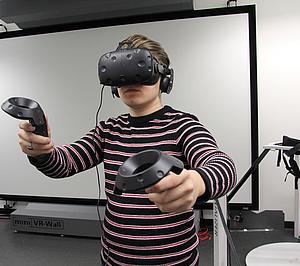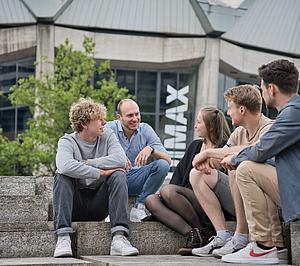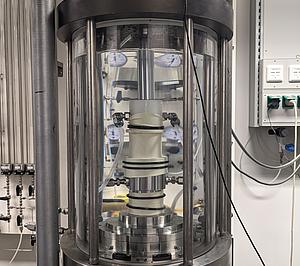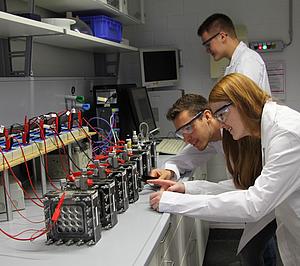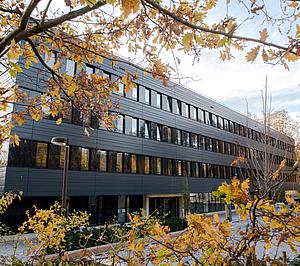Study the Fascinating Fields of Geosciences and Underground Engineering!
The Master programme Subsurface Engineering is a specialised post-graduate program, which offers a fascinating integrated taught and research curriculum in the field of civil engineering, geosciences and underground engineering. The Master course is embedded in a strong research environment with an excellent international reputation, which involves world-wide experts in a wide research area from tunnel engineering, geosciences, geotechnics, geothermal energy and computational engineering. All courses and lectures of the Master programme are held in English. Most of the lecturers spent an important part of their career in countries abroad, thus having profound teaching skills paired with a lot of international experience. The Master programme “Subsurface Engineering” takes four semesters (2 years) to complete. After the first semester with fundamental courses, depending on the own qualifications, students can choose to focus on two directions to deepen their knowledge:
- Geotechnics and Tunneling (GT)
- Subsurface Characterization and Utilization (SCU)
During the first three semesters, students attend a number of compulsory, compulsory-optional and optional courses (see curriculum). The compulsory courses in the first semester provide students key-skills in the field of geology, groundwater hydraulics, soil mechanics, and numerical methods. Advanced courses in the second and third semesters offer advanced and state-of-the-art knowledge in the field of geotechnics and tunnelling as well as in characterization and exploiting underground space. The fourth semester is dedicated to the Master thesis, which accounts for 30 ECTS. In total, to complete the Master programme, students need to approve 120 ECTS (including the Master thesis).
Study Contents
The course curriculum has a modular structure. It consists of compulsory modules, compulsory optional modules and optional modules. Credit points (CP) according to the European Credit Transfer System (ECTS) are awarded for the successful completion of each module. One CP according to the ECTS corresponds to an average student workload of 30 hours. The number of credit points awarded for a certain module depends on the workload.
Compulsory Courses
In the first semester all students have to complete four basic courses, which provide fundamental and core skills in Mathematics, Soil and Rock Mechanics, Groundwater Hydraulics and Computational Methods. The last compulsary course is a project work which the students need to complete in the third semester.
Compulsory Optional Courses
From our opinion, you can only be good at things you really like. We thus give our students the chance to specialise in the field they are most interested in. In the second and third semester they have the possibility to choose subjects from of a diversity of elective courses. The specialization phase is flexible and allows students to specialize either in Geotechnics and Tunnelling (GT) or Subsurface Characterization and Utilization.
Optional Courses
Optional courses can be chosen from the fields of practical training in geosciences or in tunneling, numerical methods, geotechnics, programming or German language. Students decide themselves how many optional courses they take. However, they must ensure that, after three semesters, they have completed enough courses to have obtained a minimum of 90 credit points.
Career Prospects
With the knowledge obtained from the Master programme, graduated students can work in a variety of engineering and geosciences positions from planning to construction roles in tunnelling, mining and pipe utility construction as well as in-situ measurement, monitoring and laboratory underground investigations for the planning and usage of underground energy systems.
The Ruhr-University Bochum
The Ruhr-University Bochum (RUB), founded in 1962, is located outside the city center in the south of Bochum. It is one of the ten largest universities in Germany and serves around 35.000 students. More than 3.000 foreign students and several partnerships with universities from countries all over the world ensure the university's cosmopolitan and international character. The Bochum university thus not only provides excellent conditions for interdisciplinary studies, but also on- and off-campus cultural and leisure-time facilities.
Campus
In addition, the RUB offers a wide spectrum of disciplines and is a front runner in the Bologna process. Thus, it was among the first German universities which reviewed all of its programmes according to the international Bachelor and Master system. Different from other, more traditional universities like Muenster or Aachen, all RUB faculties are located on one campus, thus bringing about a major strategic advantage for the cooperation between the faculties: Only some hundred meters in a walking distance separate the mechanical engineers from the chemists, the psychologists from the biologists and the civil engineers from the physicians.
Requirements
Required degree
Students who apply for the Master of Science programme must have a Bachelor (or comparable) degree in either Civil Engineering, Geosciences, or a related engineering field.
What is the minimum grade to be accepted to the programme?
There is no definitive answer to this question as the required grade mainly depends on where you come from. However, as a rule of thumb, in percentage-ratings (100% maximum, minimum grade to pass 40%) you need a GPA with at least 75%. You are thus requested to send us your application documents when you have completed your first degree programme, when you are about to complete it and even when you have barely failed it i.e. when you are a few credits shy of your degree. If you do not have the required grades, but still you are convinced that, because of your additional skills, you are qualified for the Master of Science course, you are welcome to send us your application. In the selection procedure we will favourably consider your additional qualifications.
How do I know if my university will be recognised?
Again, there is no definitive answer to this question. Usually, degrees/universities will be recognised if the university from which you earned your degree is one of the top-ranking universities in your country. There are both three-year and four-year Bachelor programs offered in your home country. Your degree has to result from at least a three-year Bachelor programme.
Language requirements
The language of instruction is English. You thus have to furnish proof that you have sound English language skills. Additionally, evidence of English language proficiency (IELTS or TOEFL) is required if the bachelor's program was not taught in English.
To be accepted to the programme at least one of the following requirements must be fulfilled:
- completion of your first degree programme in English (this means that ALL lectures must have been held in English).
- TOEFL: minimum score paper-based 550, computer-based 215, internet-based 79; the TOEFL score must not be older than two years
- IELTS (Academic): minimum score 6.0 (Overall Band Score)
Do I need to have German language skills?
All courses are taught in English. Hence, German language skills are not required to be admitted to the programme. However, some pre-knowledge of the German language will be very helpful in everyday life and it will considerably help you to socialise with other RUB students. We thus strongly recommend you to take German classes ideally before you come to Germany. Besides, Ruhr-Universität Bochum offers free German language courses for all levels each semester, and those credits can be counted as optional courses.
Application
General Aspects
In order to study the international master’s course Computational Engineering at Ruhr-University Bochum, candidates must submit an application via our online application system. This online application system is generally open for applications from November. The closing dates for online applications are:
- 15th May for citizens of non-European countries
- 15th July for citizens of the European Union
Detailed Information about the Admission and Application Process
Financial Issues
Social fee
In general, all students have to pay a social fee of about EUR 350,- per semester. The social fee includes free use of public transport in whole North-Rhine Westphalia, and reduced prices for food and drinks bought in the canteen (Mensa) and the cafeterias. Guest students (e.g. Erasmus) are exempt from the tuition fee. DAAD scholarship holders may also be exempt from the tuition fee for two semesters. Depending on the duration of the scholarship the exemption can be extended to up to four semesters maximum.

